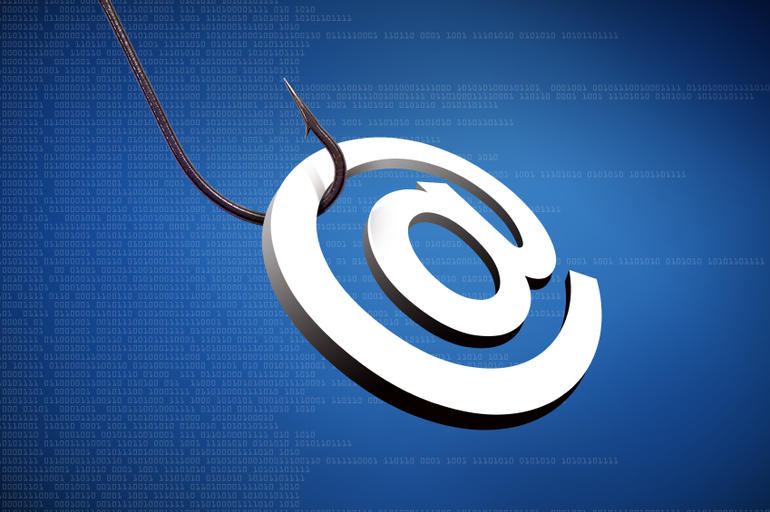Researchers Devise iPhone Malware that Runs even when Device is turned off Research is largely theoretical but exposes an overlooked security issue When you turn off an iPhone, it doesn’t fully power down. Chips inside the device continue to run in a low-power mode that makes it possible to locate lost or stolen devices using the Find My feature or use credit cards and car keys after the battery dies. Now researchers have devised a way to abuse this always-on mechanism to run malware that remains active even when an…
Read MoreTag: Malware
How to spot a phishing email
Phishing emails flow into inboxes year-round, especially during the holidays. Here are some clues to help your users spot “fishy” emails. Every day these countless phishing emails are sent to unsuspecting victims all over the world. While some of these messages are so outlandish that they are obvious frauds, others can be a bit more convincing. So how do you tell the difference between a phishing message and a legitimate message? Unfortunately, there is no one single technique that works in every situation, but there are a number of things…
Read MoreNew malware masquerades as a ride-sharing app
An update to the venerable Faketoken.q Android malware has made it easier for the program to steal your credit card information from ride-sharing apps. Faketoken attacks Russian ride-sharing apps by overlaying text boxes on the credit card information pages that can capture your credit number and other important information. Kaspersky writes: After getting onto a smartphone (judging by the malware icon, Faketoken infiltrates smartphones through bulk SMS messages with a prompt to download some picture) and installing the necessary modules, the Trojan hides its shortcut icon and starts background monitoring…
Read MoreHackers Threaten ‘Game of Thrones,’ as HBO Confirms Cyberattack
HBO has been the latest target of a cyber-attack. HBO confirmed on Monday that the network had been the target of a cyberattack, as an anonymous hacker boasted about leaking full episodes of upcoming shows along with written material from next week’s episode of “Game of Thrones.” The hack was announced to media via an anonymous email which claimed 1.5 terabytes of data from secure HBO networks was accessed, according to Entertainment Weekly. Unaired episodes of “Ballers” and “Room 104” may have been published online, and the hacker vowed more…
Read MoreOver 36.5 million Android users get infected by Judy Malware
A new malware named ‘Judy’ has been found in over 41 apps on the Google Play Store, and it has infected between 8.5 million to 36.5 million users. This is according to a report from security research firm Check Point, which discovered the malware and alerted Google. The search giant has started removing these infected apps from the Play Store. According to researchers from Check Point, the apps were available on the Play Store for years, but have been clean and virus-free for most of the time. It appears that…
Read MoreGoogle’s battle with Android malware: Who wins?
While most people are aware of the malicious threats targeting their computers, many still don’t realise that their mobile devices are an increasingly lucrative a target for cybercriminals. The main way smartphones are attacked is though apps, often ones which pose as innocent and useful but actually aim to steal data or in the case of ransomware, force users to pay up. Recently, google uncovered the Android version of Pegasus, a mobile spyware created by NSO Group, an Israeli surveillance company considered the most advanced producer of mobile spyware on…
Read More40 law enforcement agencies raids seize servers hosting ransomware & botnets
Legal raids in five countries seize botnet servers, sinkhole 800,000+ domains reports ARS. A botnet that has served up phishing attacks and at least 17 different malware families to victims for much of this decade has been taken down in a coordinated effort by an international group of law enforcement agencies and security firms. Law enforcement officials seized command and control servers and took control of more than 800,000 Internet domains used by the botnet, dubbed “Avalanche,” which has been in operation in some form since at least late 2009.…
Read MoreBanking Trojans remain the most lethal cyber threats says Kaspersky Lab
Banking Trojans have retained the reputation as the most dangerous cyber threats. This is according to a kaspersky Lab report. The study says financial malware attacks on online users raised by 15.6%. The main reason for the spike is the nexus between the authors of two leading banking Trojans: Gozi Trojan and Nymaim Trojan, pushing both into the top 10 ranking of financial malware. These malware are often propagated via compromised or fraudulent websites and spam emails and, after infecting users mimic an official online banking page in an attempt…
Read MoreAndroid app Malware steals two-factor SMS codes, hijacks big Australian banks systems
Millions of customers of Australia’s largest banks are the target of a sophisticated Android attack which steals banking details and thwarts two-factor authentication security. Commonwealth Bank, Westpac, National Australia Bank and ANZ Bank customers are all at risk from the malware which hides on infected devices waiting until users open legitimate banking apps. The malware then superimposes a fake login screen over the top in order to capture usernames and passwords. The malware is designed to mimic 20 mobile banking apps from Australia, New Zealand and Turkey, as well as…
Read MoreBanks in Russia, Japan, the US, and Europe have fallen victim to a massive, sophisticated malware hack
Hackers rob US and global banks of millions in one of the largest heists ever writes Kwame Opam on the Verge Banks in Russia, Japan, the US, and Europe have fallen victim to a massive, sophisticated malware hack, allowing the perpetrators to steal hundreds of millions of dollars since 2013. According to a Kaspersky Labs report provided to the New York Times, more than 100 banks in 30 nations have been affected by the breach, with upwards of $300 million stolen in the process. One of the largest bank heists ever…
Read More








